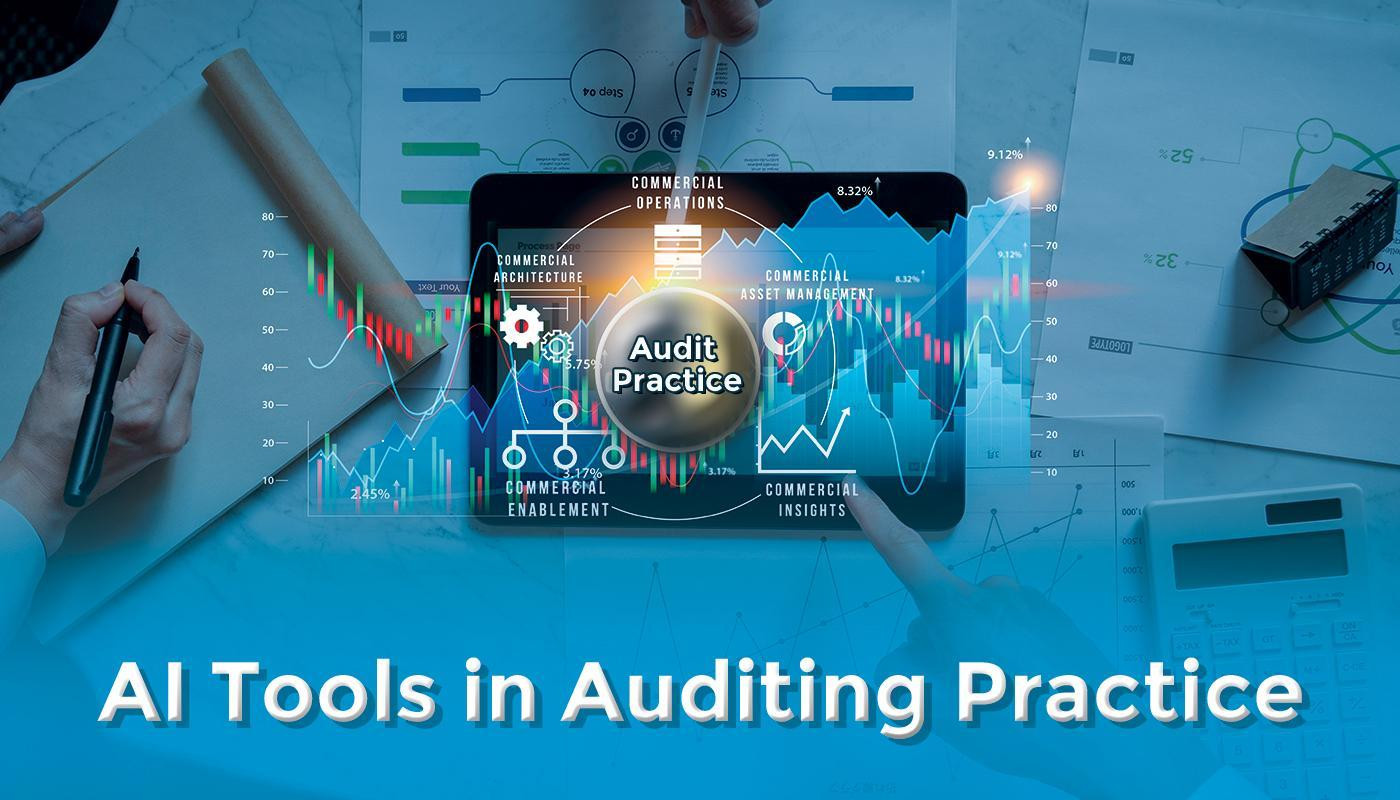


Background
Artificial Intelligence (AI) is currently a prominent topic globally, garnering significant interest from both - corporations and governments, for its potential applications and associated risks. Within accounting and auditing firms, there's a growing trend towards incorporating AI into various aspects of their operations. This article delves into the current state and potential trajectory of AI deployment in accounting and auditing firms.
Evolution of Accounting
Historically, accounting records were maintained manually, with audits conducted in a similar fashion. The advent of computers facilitated the transition of manual records into digital formats, yet audits still largely relied on manual processes for a significant period of time. Subsequently, major audit firms began developing auditing tools and software to digitize audit procedures, primarily enhancing efficiency through automation and data analysis.
In the present era, AI, amongst other areas, is poised to revolutionize auditing by automating tasks traditionally performed by humans. AI extends automation into cognitive functions, enabling software to perform tasks akin to those executed by rational human beings. While AI holds the potential to significantly reshape audit processes, its evolution will require time, starting with automation and culminating in Machine Learning. However, like any technology, AI presents both challenges and benefits.
Advantages and Use Cases for AI in Auditing
Testing Journal Entries: Analytical tools can import journal entry data, allowing auditors to define & apply specific risk criteria on the complete data set. The tool can then analyse the data, identifying relevant journal entries based on defined criteria, checking data completeness, and flagging inconsistencies or anomalies. This streamlines the audit process and directs focus on outliers for detailed evaluation.
Reviewing Contracts: AI tools can summarize critical contract terms, enabling auditors to concentrate on analysing key contract terms rather than manually reviewing voluminous contracts. However, ensuring that AI tools / software captures non-standard terms and analyses interconnections between various terms remains a challenge.
Financial Statement Analysis: AI can assist in financial statement casting and validating disclosure consistency, ensuring accuracy and completeness. This would be useful in analysing the financial data which is available in a consistent form.
Image Recognition Software: This technology can expedite inventory stock counts by analyzing inventory characteristics and reading item codes. As the AI tool accumulates more data, its image recognition capabilities will improve, significantly reducing inventory counting time.
Automated QR Codes: Companies are implementing automated QR codes for fixed asset monitoring and identification. These codes facilitate physical verification using mobile scanning apps, with IoT devices in manufacturing facilities flagging asset movements for accounting teams and auditors.
Streamlining Audit Flow and Documentation: AI-enhanced auditing software assists auditors by maintaining audit procedure flow, highlighting overdue tasks, and providing links to relevant case studies. Investments in automation software like Validate, Advantage, and others improve audit efficiency and documentation quality.
Predictive Intelligence: AI tools leverage key performance indicators and economic data to build expectations for financial results, aiding auditors in analysing variations between actual and predicted results.
Effective and Timely Audit Planning: AI tools collate information on market trends, industry developments, and company-specific data, ensuring audit teams remain updated and focused on relevant information.
Bots: Some firms utilize bots embedded in company ERPs to analyse transactional data and flag issues in real-time, enhancing audit efficiency.
In a recent seminar, CA Jagdish Lade, an AI & Data Science Specialist, Researcher and Speaker, demonstrated the use of ChatGPT in tasks such as compiling information relating to tax audit forms and responding to basic notices from tax authorities.
Challenges and Considerations Using AI
Developing In-House Tools vs. Outsourcing: Firms must decide whether to develop in-house AI tools or utilize outsourced solutions, considering factors such as technological expertise and data requirements. Cost – Benefit analysis for whether or not to develop such tools in-house, in itself would be a rigorous though a very important task.
Skill Sets: Auditors need to adapt to AI-driven auditing, requiring significant and frequent changes in mindset and skill sets. Effective use of AI tools necessitates significant change management efforts.
Client Expectations: Automation enables deeper data analysis, raising client expectations for valuable insights. Auditors must evolve to meet these expectations and add value beyond traditional auditing roles.
Auditors as Data Scientists: With AI's evolution, auditors must acquire data analysis skills akin to data scientists to effectively utilize AI tools.
AI vs Human Judgment: While AI streamlines processes, human judgment remains crucial, particularly in subjective areas like assessing assumptions and evaluating human behaviour behind various business decisions.
Client AI Usage: Auditors must understand clients' AI implementations to assess their impact on audit processes and information systems effectively.
Bias in AI: AI bias can reinforce existing patterns while potentially overlooking relevant factors. Review by independent teams can help identify and mitigate biases.
AI presents substantial benefits for accounting and auditing firms, ranging from automation to enhanced efficiency and data analysis. However, firms must effectively overcome challenges such as dealing with increased client expectations, matching the required skill set, and mitigating any possible AI biases. Effective implementation requires careful consideration of exact requirements, related costs, skill availability, and adaptation to evolving technological landscapes. Smaller firms can leverage common AI tools to bridge resource gaps, while larger firms should strategize their AI adoption. As technology advances, audit firms must continuously evaluate and refine their AI strategies.
This article is written by CA Shailesh Kulkarni, Senior Manager at Kirtane & Pandit LLP Chartered ACcountants With inputs from CA Anand Jog, Partner, Kirtane & Pandit LLP Chartered ACcountants